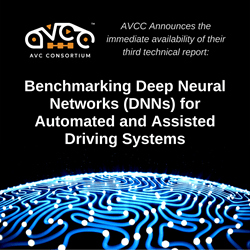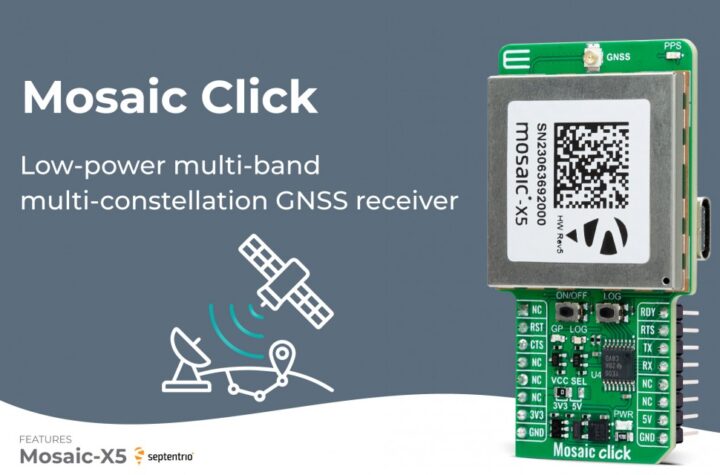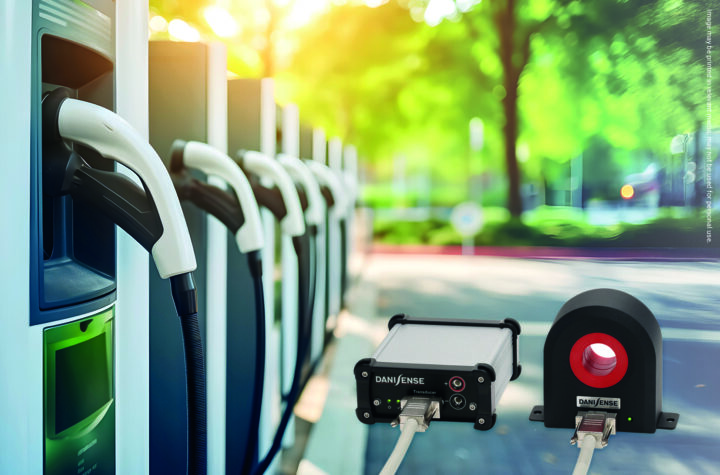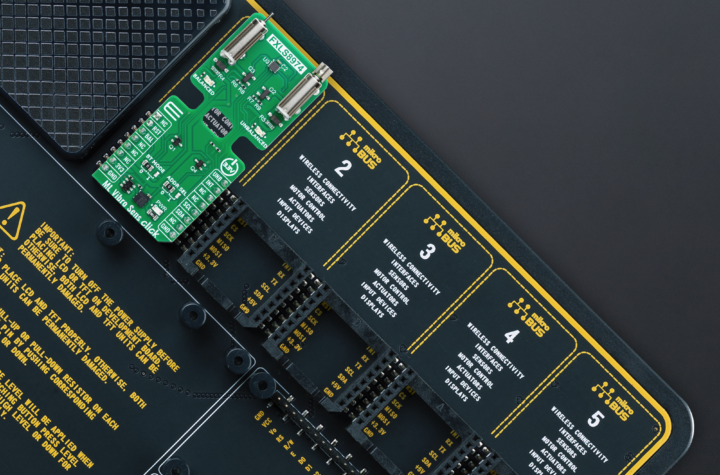
The Autonomous Vehicle Computing Consortium™ (AVCC) a global collaboration of automotive and technology industry leaders focused on automated and assisted driving compute solutions, announced the release of their latest key technical report which was developed to provide recommendations on how to benchmark deep neural networks (DNNs) for automated and assisted driving use cases.
“To create a truly autonomous future, there needs to be testing and reporting standards that enable collaboration throughout the industry,” said Giuseppe Rosso, Chairperson of the AVCC Board of Directors and President and Managing Director of Arriver. “The new benchmarking report from AVCC is a result of key industry players working together to establish standardized test conditions and metrics for accurate comparative data, taking us a step closer to a safe, truly autonomous future.”
TR-003 Benchmarking Deep Neural Network (DNN) for Automated and Assisted Driving Systems
Automotive OEMs and Tier 1s commonly send out requests for information (RFIs) and requests for quotation (RFQs) to vendors to understand a solution’s compute performance and system resource requirements. This is a crucial step when assessing whether the sourced part is a suitable choice when designing the next-generation compute platform. Traditionally, some relatively simple benchmarks have been used, but as complexity of software has increased with higher levels of automation, these benchmarks no longer provide sufficient information when making important design and sourcing decisions. In this report, AVCC presents recommendations on how to benchmark deep neural networks (DNNs) for automated and assisted driving use-cases.
Topics go beyond current benchmark challenges and the supply chain to cover the recommended rules and conditions to run a benchmark exercise, standards for reporting said exercise, and the areas where AVCC plans to make benchmarking recommendations in the future.
“This new report is a guide to the AVCC’s industry recommendations on conditions and metrics for benchmarking DNNs,” said Kasper Ornstein Mecklenburg, Chair of the Micro-Benchmarks Working Group and Staff Performance Analysis Engineer for the Automotive and IoT Line of Business at Arm. “By providing a consistent framework for like-for-like comparisons, we believe this report will help OEMs, Tier 1s, IP vendors, and SoC suppliers find a common ground while opening larger discussions about industry benchmark needs.”
To access this report or any of AVCC’s other reports, please visit https://www.avcconsortium.org/
For more information about AVCC, including how to become a member and contribute to future AVCC technical and marketing work, please visit http://www.avcconsortium.org
About AVCC
The Autonomous Vehicle Computing Consortium (AVCC) is a global non-profit group of automotive and technology industry leaders coming together to help accelerate mass production of safe and affordable vehicles with assisted driving and autonomous technology (levels 1-5). The AVCC is defining a scalable reference architecture and platform to meet the assisted and autonomous performance goals within the power, thermal and size constraints of a vehicle. This computing platform will be designed specifically to move today’s AV prototype systems to deployment at scale. The group is also collaborating to develop requirements for the compute platform architecture, its hardware requirements, and software APIs for each building block in autonomous vehicle systems.















More Stories
Mosaic Click board from MIKROE delivers global coverage multi-band and multi-constellation tracking ability
Current transducer from Danisense selected for DC charging station testing device demonstrator at TU Graz
New Click board from MIKROE helps develop and train ML models for vibration analysis